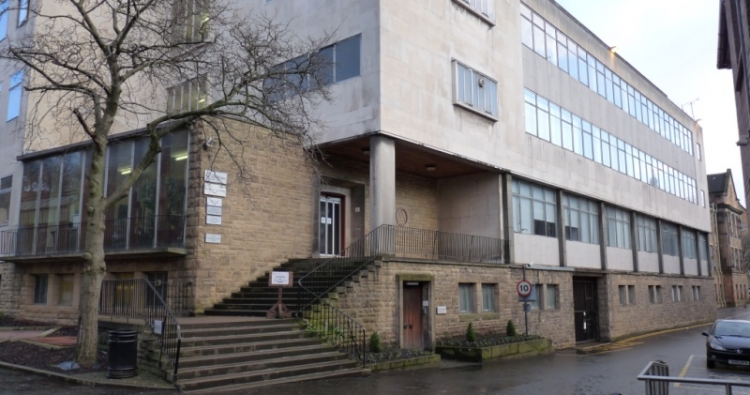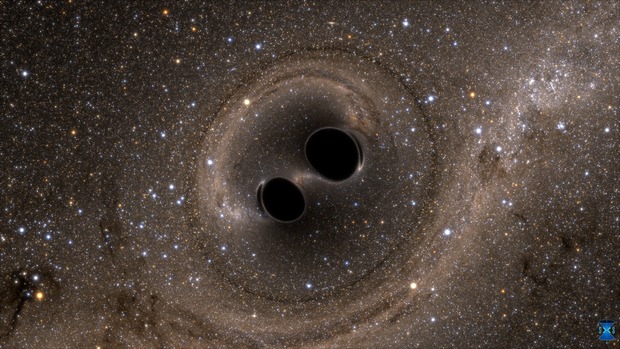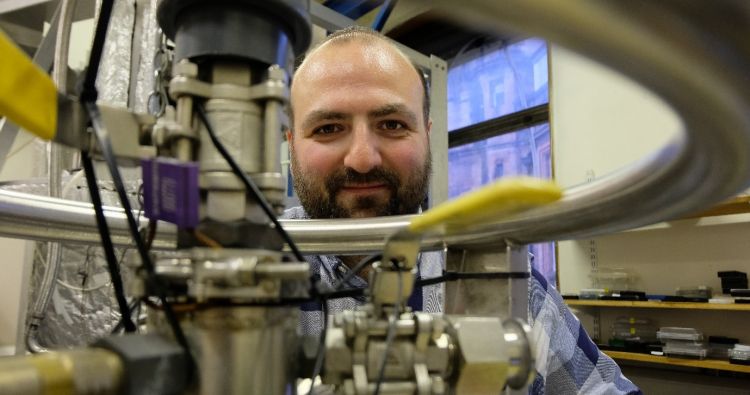Dr. Murray’s top tips for a career in science
- Don’t be afraid to ask questions if you don’t initially understand something. Ask teachers or lecturers for clarification of issues, make use of supervision/revision sessions and look up textbooks sooner rather than later in case it’s something you need for later lectures or before you are studying for multiple exams at once.
- Develop a broad knowledge of your chosen subject area. Popular science books, magazines and TV shows often better show the applications of fundamental topics covered in lectures.
- During your degree, apply for paid summer placements in research groups or internships in industry. These short 6-8 week projects can often be a stepping-stone into something after you graduate.
- Keep thinking ahead. Look at job adverts and postgraduate opportunities and see what honours course choices and skillsets (e.g. python, Matlab) will help you when applying for things. Keep your CV up-to-date - you never know when you might need it at short notice!
- Join clubs and societies. Physics and Astronomy societies organise invited lectures and older students often have hints about courses, things you don’t quite understand and are often a source of second hand textbooks. Social and sports clubs allow you to meet people from other subject areas and often go on subsidised organised trips.
What do you do in your Job?
The LIGO-Virgo Collaboration uses a network of large interferometers to search for gravitational waves emitted from massive astronomical events, sometimes occurring over a billion years ago. These detectors are designed such that a passing gravitational wave will induce tiny displacements, a million millionth of the width of a human hair, between coated mirrors, suspended at the end of each of the interferometer arms.
One significant limit to the sensitivity of these detectors results from vibrations of atoms, or thermal noise, in the highly reflective mirrors coatings used to reflect the high-powered lasers. This can obscure faint signals from distant sources. At the Institute for Gravitational Research, I investigate ways to reduce this level of noise by improving the performance of current coatings, for example, by varying their manufacturing processes or by researching key properties of alternative materials, which could instead be used to make mirror coatings. Although coatings are just one component of these large 4km long instruments, it is amazing to each part come together and allow the historic first detections of gravitational waves from black holes and neutron stars to be made.
Future gravitational wave detectors are likely to operate at cryogenic temperatures to reduce such thermal noise. I am currently researching coatings, which could be suitable for use at low temperatures. Developing better coatings for upgrades to Advanced LIGO will enable more of the Universe to be explored through gravitational wave astronomy.
Summarise the impact your job has on everyday life
Astrophysicists already study the sky over multiple wavelengths (light, radio waves, X-ray, ultraviolet waves and gamma rays) but gravitational waves give us an entirely new way to “listen” further into the Universe, giving us new insights into how it formed, and into some of the processes involved when pairs of black holes or neutron stars collide.
Gravitational waves were first predicted in Einstein’s general theory of relativity over a hundred years ago and this is the first time we have been able to compare his predictions with extreme warping of space-time and these discoveries match with his predictions, helping scientists better understand the fundamental laws of the Universe.
What’s the best thing about your job?
The LIGO-Virgo Scientific Collaboration has over 1000 researchers in over 100 laboratories in 18 countries and that has allowed me to visit several gravitational wave detectors and to work on projects at laboratories in Japan, Germany and in the US. Conferences and workshops are an important part of research life, allowing you to meet and talk to many researchers, young and less-young, who are just as keen to push the frontiers of physics. Working in labs and writing papers allows you to expand your research but travelling to give talks and as part of your job really does broaden your horizons.
What did you study at school?
I went through the Scottish education system, which differs from the rest of the UK. I took Highers in English, Mathematics, Physics, Chemistry and Geography. In my final year, I took CSYS (then approximately equivalent to A-level) Mathematics, Physics and Chemistry and, for fun, Higher Biology (despite not having taken the Standard Grade beforehand).
What inspired you into a career in science / engineering?
My dad is an engineer and always involved my brother and myself when he undertook DIY about the house or when maintaining cars and bicycles. This was probably mainly because we were free labour, but we learned a lot about design and construction from projects ranging from building an extra bedroom to making furniture from reclaimed wood.
I went to Eastwood High School (in East Renfrewshire, just south of Glasgow) which had very good Mathematics, Physics and Chemistry departments with some very enthusiastic teachers and that was the three subjects I then went on to study in my first year at the University of Glasgow before completing my MSci in Mathematics and Physics.
During the second year of my undergraduate degree I spotted a advert looking for some summer students to help install vacuum equipment in a new lab in IGR, which has since gone on to be used to test technologies before they go on to be implemented in gravitational wave detectors. Having really enjoyed that 8-week summer project I knew before applying for my PhD that it was a research group that I would enjoy working in.
Institute for Gravitational Research

The Institute for Gravitational Research, supported by STFC funding, is focused on gravitational astrophysics, enabled by gravitational wave detector technology, and analysis of gravitational wave signals.

